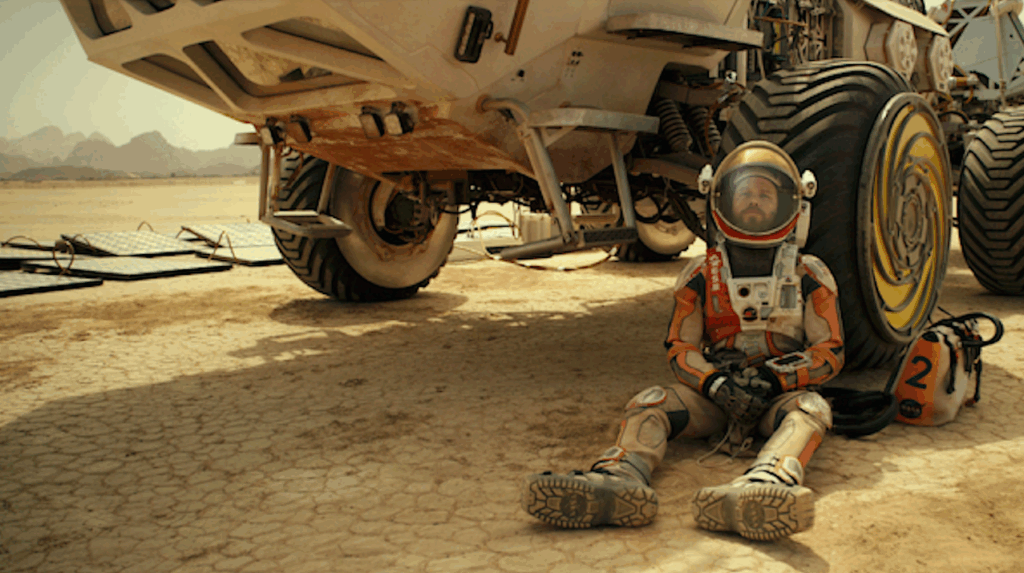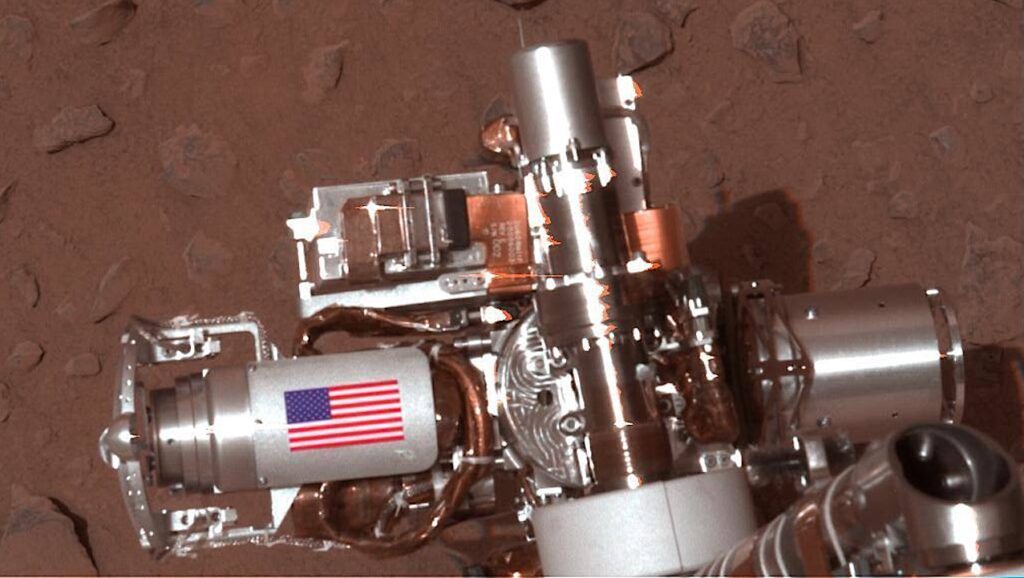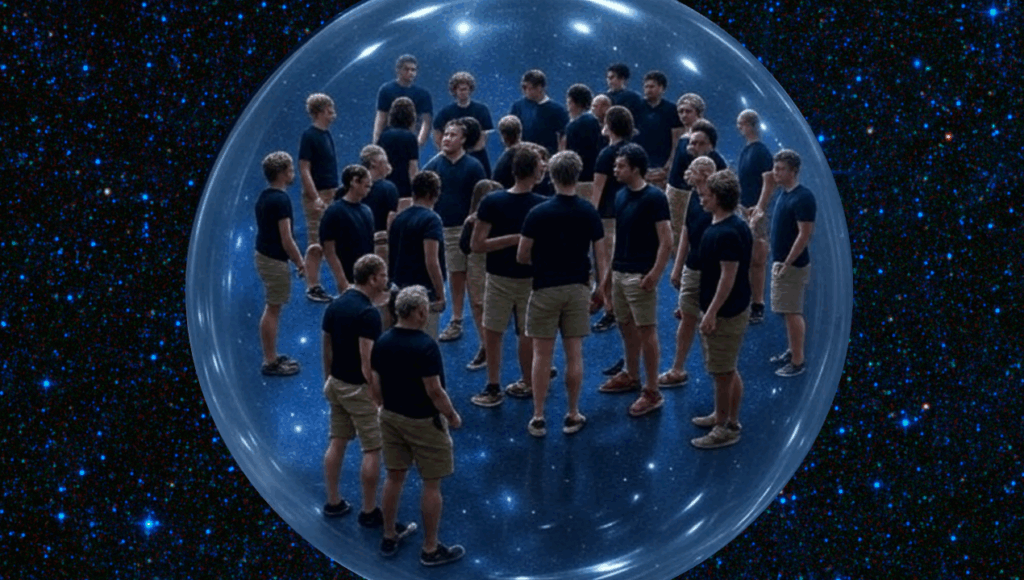Thinking About the Vision
 Plan B for Outer Space, Russell Saunders, Jr.
Plan B for Outer Space, Russell Saunders, Jr.
“As events unfold, it appears that the Vision for Space Exploration (VSE), the President’s plan to return humans to the Moon and then onto Mars, is on the classic pride-before-the-fall trajectory. In the spirit of collegial exchanges, I offer the following observations and thoughts for our recovery. To my fellow rocket scientists and space enthusiasts, the time has come let go of last century’s space dreams and start working toward a more contemporary future.”
Comments? Send them to [email protected] Your comments thus far:
Excellent, perceptive essay. I still think a $30 billion prize for a Mas expedition would do the trick.
Keith; I’m pleased to see the breadth of the comments. I thought I should offer a response:
Thank you to my fellow space enthusiasts for your critiques and compliments. You’ve raised some good points. Here are my responses.
(1) I feel the pain of all these changes too. It is very difficult and frustrating to keep following the redirections of our leaders when it takes longer to get the job done than it does for them to change their mind. Given this unending situation (I’ve been in the space program for over a quarter century), I implore the more visionary amongst us to look beyond what our political leaders can envision and craft a new vision that fits the budget and meets the needs of humanity. We are the ones who know the limits and emerging abilities of technology and science. We know how much it would really cost (if we avoid the tendency to lowball). It’s our duty to craft visions that our leaders can grasp, so that they in turn, can help us all implement a better future.
(2) For those of you who want humans on the Moon or Mars soon (in the theme of the Vision), given what it really costs, you will need to have NASA’s annual budget increased by roughly $5B (2007 dollars) in perpetuity. As much as I think that could be a good thing, I do not see how that is feasible. This is the Achilles issue. If we keep going after what we cannot accomplish, then we are no better than the Black Knight in Monty Python’s Holy Grail – noble but in denial of lost ability. As painful as it is to acknowledge the loss, it must be done so that future plans are consistent with resources.
(3) I’m not sure what will become of NASA when the reality check of the Vision finally bounces. It will not implode, but probably evolve, painfully. I suspect that NASA will finish the new spacecraft sufficiently to replace the Shuttle and will make the Station suitable for research. Sustaining just that is likely to absorb the total human flight budget, assuming that NASA still invests in its more general responsibility of sustaining preeminence in the sciences and technologies of air and space flight. Absent of the scale of funding to pre-colonize the Moon, perhaps they will prudently focus on research to make such adventures affordable so that we can actually go there sometime in the future, and in the meanwhile fully utilize cost-effective robotics to extend our reach as far as society will support us to do so. Meanwhile, entrepreneurs will make progress. Granted, the entrepreneurs cannot do as much as an Apollo-funded NASA, but their small steps are indeed progress, and it is the kind of progress that people are willing to invest in.
(4) For those that are unfamiliar about the historic trends being played out now and how it applies to government, another paradigm is the history of battleship aficionados and how they viewed the future while submarines and tiny little airplanes were coming onto the scene. This is not a technical issue, but rather a human behavioral issue. Be attuned to the distinction between objective discourse and the merely emotional expressions. History has shown that the incumbents will vehemently deny the trends, as they have too much invested in the past. This is both literal and psychological. It is akin to the denial that one feels during the grieving process.
The bottom line:
As a community, we either need to permanently increase NASA’s budget from $17B to $22B, or we need to create a new visions that fits $17B and meets our responsibilities to humanity’s future. Which do you think is more feasible to accomplish?
Thank you for thinking,
Russell Saunders, Jr.
Thanks much, Mr. Cowing, for printing Mr. Saunders’ important opinion piece.
While his references to models of innovation in the corporate world don’t necessarily apply to a federal R&D agency like NASA, Mr. Saunders is right that the Apollo paradigm, with its reliance on massive spending ramps, Cold War-type foreign competition, and an all-government approach, is no longer a useful model for our civil human space flight program. It is unfortunate and sad that the VSE, a strategy designed to create a new science-driven, commercially leveraged, and internationally cooperative model for NASA human space flight, has been held hostage to an implementation plan that even the NASA Administrator admits is little more than a repeat of Apollo “on steroids”.
More than that, Mr. Saunders brings up an important question that the next White House, Congress, and NASA Administrator will have to grapple with — what to do with NASA’s human space flight budget, workforce, and infrastructure?
Thanks to the unnecessary costs and time-consuming development of the duplicative Ares 1 launch vehicle, NASA is squandering its political window of opportunity under the Bush Administration to get some actual human lunar hardware underway. This will make it very easy for the next White House to cancel the human lunar return effort and apply those dollars to other R&D priorities (energy, climate change, etc.) or other national priorities (Social Security and the baby boomer retirement, Medicare and the aging population, the war on terror, etc.). With the agency’s misplaced priority on Ares 1, NASA is sacrificing the Bush Administration’s human lunar return goal. Within a year or two of the next White House taking office, NASA human space flight will again be stuck in Earth orbit, with an aging space station and another expensive transportation system whose costs must be born by NASA alone.
Worse, as Mr. Saunders points out, NASA’s human space flight program may suffer increasing irrelevance in the face of private human space transportation systems and space stations and burgeoning automated and remote capabilities in the information age. If robots are performing the actual exploration of other worlds and the commercial sector is populating Earth orbit with private astronauts, what is left for NASA human space flight? Is it really acceptable to spend billions of taxpayer dollars each year on a civil human space flight program that does no actual exploration and that duplicates private sector capabilities? At what point is there a crisis of purpose and confidence that overwhelms even the pork-barrel politics that NASA’s human space flight programs and centers must increasingly rely on for support?
Again, thank you for printing this important opinion piece. Mr. Saunders brings up critical questions that need to be considered seriously and soon if NASA’s human space flight efforts are to have any vitality and relevance in this century.
I do think “Saunders” makes a lot of good points but barring a continuation of outrageous budget needs in the future for Iraq, I think he’s wrong about a 1-7 year lifetime for the VSE program. The reason is China, India, Russia, Japan all marching to the moon and China even planning to land people there. There is no way American politicians can stop us from going there if others are going. That is the major lesson we learned during the1950s-1960s. Personally, I’m for going to Mars but not a fan of going back to the moon.
I greatly appreciated the commentary from Russell Saunders Jr. I have felt for a long time that the old guard of NASA lacks the vision and freedom of action to move humans into space in an effective manner. The plans are grandiose and the results piddling. Considering how important a space presence is for dealing with global problems, in fact for giving humans the chance to survive extinction level events on this planet, we need to better. A privately funded space institute could do that, with the right leadership and grassroot support from like-minded people around the world. I know I would support such an entity.
“Russell Saunders” may be well advised to not use his real name, not out of fear of retaliation from vengeful NASA managers, but out of acute embarrassment for making such specious arguments.
Let me see if I understand. He predicts that the Vision for Space Exploration is going to spontaneously implode in “one to seven years.” Here is why?
(1) Exploring the Moon and Mars was first imagined, “Saunders” states, back in the 1950s in the pages of Colliers. It was actually imagined far earlier than that, but let us concede the fact that people have been dreaming about exploring the universe for a long time. But is there a point to that? “Saunders” seems to imply just because the dream is an old one, it is somehow obsolete. One does not necessarily follow the other. It’s sort of like saying the democracy is so 18th Century.
(2) “Saunders” suggests that the Vision is unpopular. But most polling, even the one he cherry picks from, and most recently Zogby, suggests the opposite.
(3) “Saunders” states that the Vision does not deal with the entrepreneurial realities of the 21st Century. He has apparently not heard of COTS, the Centennial Challenges, or NASA’s granting licence to private companies such technologies as inflatable habitats and plasma rockets. In fact NASA seems to be making use of the new space companies and, in return, a lot of the new space companies desire to make use of NASA as a core market. Rather than being in conflict, it seems that private and public space complement one another.
(4) There seems to be no evidence, outside a few discredited internet rumors, that the Vision is suffering from any of the budget overruns or schedule slippages that plagued the space station. True, the recent Congressional action in the Omnibus spending bill was not helpful and unexpected costs concerning the space shuttle have been a problem. But talk on Capital Hill seems to point toward an infusion of cash to cover these shortfalls.
“Saunders” really embarrasses himself when he offers an alternate vision. It seems to consist of space exploration as glorified roller coaster for the rich and glorified video game for everyone else. One might be excused for greeting this “grand” vision with a yawn and a roll of the eyes.
Besides, anyone who would dare use the phrase “contemporary future” needs to be jeered at.
Mark R. Whittington
I also liked the “Saunders” article, but I’m not sure I agree with the contention that the way to achieve the Vision is for NASA to step aside and invite the new launch startups to move in. The manned program needs system reliability and robustness now more than ever, whereas I think the startups are knocking themselves out to cut prices instead. You can’t do both. The best way to save money is probably not do the same thing but bigger — Apollo on steroids. Probably the best way is (a) use cargo lift to LEO, accepting higher risk carriers to get the benefits of competition; (b) capitalize on robotic on-orbit assembly and lunar/Mars asset delivery; and (c) concentrate on getting high reliability and high heritage when humans are involved.
I think this is a problem with program balance (“heavy iron” do-all design, early selection of sole-source provider, and new development vs. heritage designs) and with conflicting mandates (STS flights, ISS completion, extremely low risk tolerance, yet with less than 4 years launch gap and while underfunded). I think it’s possible to cut costs and rebalance NASA’s portfolio by scaling back the designs for the manned program and shifting early preparatory work to robotic precursors. Once robots pave the way, we can scale up the personnel carriers.
My employer would probably disagree with this.
When NASA was originally tasked with developing the space shuttle, they agreed to a budget that was half of what they asked for. We have been paying for that “bargain” many times over since then.
When the President asks NASA for a budget for something, they should tell him the truth. If it costs too much, they need to do something else.
The “Vision” might have worked with cobbled together space shuttle parts, but if the parts don’t add up to a workable system, the project needs to be canceled, and we may have to suck it up and man-rate the Atlas V, Delta IV or whatever is available.
The trouble with the Bush administration is that they never admit mistakes. If you don’t admit you have a problem, you can’t come up with ways to solve it.
We used to laugh at the Soviet Union when they did hid their problems. Now they are laughing at us, as they sell Soyuz rides to our citizens.
While it was interesting to read the author’s projection of the future, I ultimately have todisagree. I do agree with all he has to say about the private sector, all their initiatives are great, inspiring, and startling in their rapid pace of development. I believethat human transfer to the ISS will likely be available on a private commercial basis sometime during theperiod between2010 and 2020. However, the corollary that these achievements will somehow make NASA fold its tent and go home is what I don’t buy.
The Orion will be able to provide transport to and from the ISS, but that is not what it is commissioned for. I simply can’t imagine the US congress, or any President, allowing NASA’s flagship program, the human space exploration program, a symbol of America’s pre-eminence throughout the world, to wither and die. It is like saying that the Navy is going to be de-commissioned because it no longer has a function since commercial interests could do the same job cheaper. Aint gonna happen. In addition, the fact that NASA has skillfully built its centers throughout the US also ensures broad support due to the employment and spending benefits.
I foresee a crucial point when the funding from retiring the shuttle becomes free, and whether Ares V is authorized to go ahead. If that can be supported in a bipartisan way,then I believe that the moon base, and ultimately further, can be achieved, and can be inspiring once again to the world. NASA’s true place is forging ahead into areas where it is not yet feasible for private enterprise to go, to lead, inspire, and show the way, and then to let the private sector to make the best of its opportunities.
I don’t reply to this sort of thing much, but this requires a reply in my mind.
Our esteemed anonymous author postulates that in these modern times, the concept of humans exploring the solar system has fallen out of vogue, to be replaced by joy rides by millionaires on 10 minute suborbital flights, and then later weekend stays in earth-orbiting hotels. Apparently, that’s where “it’s at” these days. As he so sarcastically puts it, the “Colliers” version of exploration is “passe”. This sounds to me a bit like Paris Hilton telling me that a certain hairstyle is no longer in vogue. Your author is suggesting that instead of humans exploring Mars, Callisto, or Saturn, that it is much better for us to settle for rich folks staying overnight at an Earth-orbiting hotel.
And then he says that it is better in the future to have as a substitute for human exploration of the solar system, the ability of to push an “enter” button on a keyboard in an office in order to execute a command to a machine on some far away world, and then wait for a hour or two or four for a return image, video, or audio result is just as good. Can you imagine the “thrill” as one faintly hears the servomotor on a little robot arm pick up a rock on Mars? Can you imagine it sending chills up your spine and tears in your eyes such as when the crew of Apollo 8 read Genesis on live TV on Christmas eve from the moon, as we saw earthrise for the first time in human history? Hardly. To claim that robotic exploration is the same as humans actually being there is so utterly preposterous. I seriously question the motivation of your “author”. They sound to me more like one of those many robotic scientists out there who want to spend hundreds of millions of taxpayers dollars in order to make a career our of studying some esoteric phenomenon in a far off world in order to satisfy their own personal curiosity. The reality is that if there is to be never, ever any intent for humans to explore these places themselves, then there is very little justification to spend the billions of dollars to send planetary probes to these places, as they will never be anything more than abstract far off places that we will never touch in any circumstances.
Your anonymous author could not be more wrong on all accounts. What your author here is really doing instead is telling Americans to get ready to settle for less. He is trying to somehow twist a poor substitute for former excellence and preeminence into something not only acceptable, but “cool”. He is saying: “America can’t do great things any more, but this cool new orbital hotel for rich kids, and solar system exploration-by-video-game is in fact much better! That old stuff about brave men breaking the bounds of achievement in order to expand human presence and experience is so “yesterday”, so “old school”!
Human exploration (the real kind, not virtual) has not lost it’s relevance in this world. For 10,000 years of human history, it has been relevant. To claim that in the past 10 or 20 years it is no longer so is beyond silly, it is ignorant.
If there is any historical reference to be made here, it is simply that the USA has become lazy, decadent, immoral, and corrupt – much like most empires become in their last days. Such fading empires often begin their slide down by no longer being able to do the extraordinary things that they could do at their zenith. America no longer has the ability to support proper space exploration as it once did. This is not currently because of a lack of ability or resources, but rather a simple lack of will and discipline in society due to ignorance and decadence (later, as the ability is allowed to atrophy further, it will become a lack of ability). Predictably, internal pundits and apologists will begin comment that “well, this stuff that we aren’t doing anymore really was never very important or worthwhile anyhow”, and try to convince an increasingly self-absorbed public that settling for less, or a poor substitute, or none at all, is really the way to go after all, and that the old achievements are now in fact “passe”.
No, exploration of the solar system will continue, and maybe it will take a little longer as the USA pulls out of the game, but the rest of the world doesn’t think human exploration so “yesterday” and “uncool”. I suspect that if your author gets his way, maybe in 50 years some American rich kids aboard their earth-orbiting hotel playing with a little toy rover on Mars might catch a televised glimpse of Chinese explorers bounding across the Martian surface as they set up a base camp…
But hey, that’s perfectly fine, because those Chinese are “so yesterday” in their vision anyhow, as they spread out in the solar system. America, as it’s downward spiral continues much like the Roman Empire, will continue to exclaim: “but we have our orbiting hotels, and that makes us strong” – and then “when is American Idol coming on anyway? I’m bored with this Mars thingy”.
The Plan B article was very well written, thought-provoking and well argued. Sadly, Plan B may imply a public disenchantment with human space flight. That could be the real casualty of pursuing the Apollo on Steoroids approach.
I have been reading your site for several years now, and have always thoroughly enjoyed your coverage. Thank you very much. I have never written you before, but an article you posted today could not go without comment. I just finished reading “Plan B for Outer Space”, and the author hit the nail right on the head! As a child of the 60’s/70’s, I grew up with NASA in her “glory days”. But as Mr. Saunder’s states, that paradigm simply does not work in this day and age. We need to take the billions wasted on STS/SDI/ISS/Orion/etc and put that into a real science based program. Please continue to publish Mr. Saunder’s commentaries, pseudonym or otherwise. His is a refreshing voice in what would otherwise be a sea of “science-less science”.
Wow. Good to see that Mr. Anonymous can absolve Bush from the pending implosion of his own program. And to do so without putting his name behind it. Is this going to be the official line from NASA Watch when everything collapses? Are you going to absolve Bush of any responsibility? Let him off the hook? Instead of allowing anonymous experts to trash the program, go out and report on how bad things are and how much Bush has fouled things up. Show some balls here. Yes, people will criticize you, might actually yell, but you can always tell them to shut up.
 Editor’s note: I just love it when people bash others for writing anonymously – and hide behind anonymity themelves as they voice their complaints! How silly.
Editor’s note: I just love it when people bash others for writing anonymously – and hide behind anonymity themelves as they voice their complaints! How silly.








